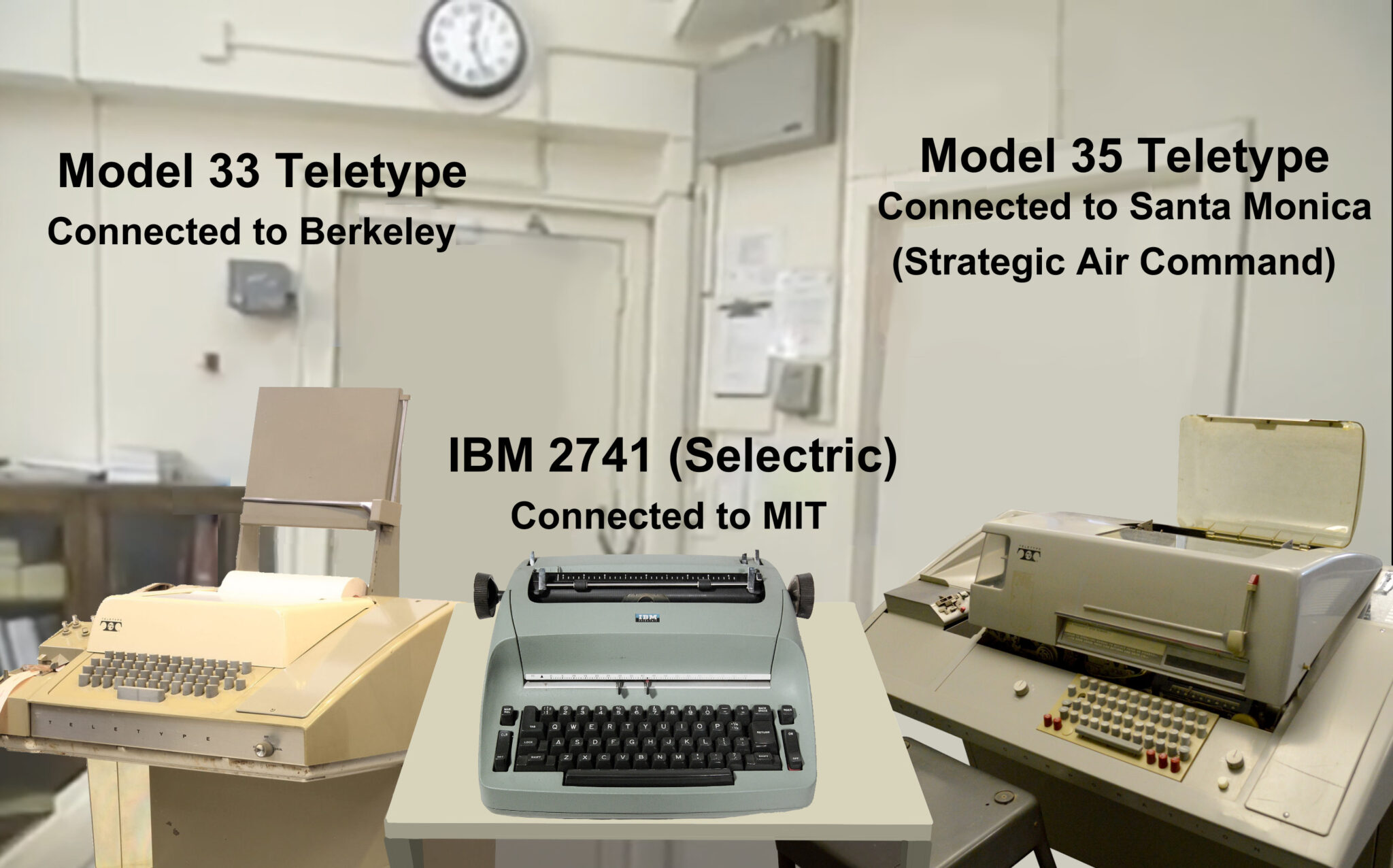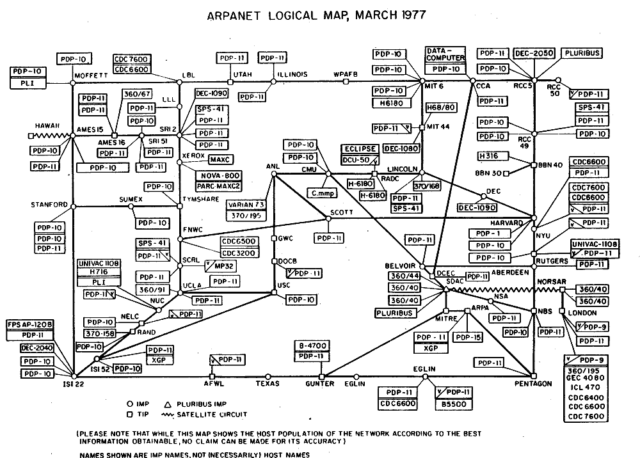Science
Related: About this forum(A Good long read). An Ars Technica history of the Internet, part 1
APR 14, 2025 6:00 AM
In a very real sense, the Internet, this marvelous worldwide digital communications network that you’re using right now, was created because one man was annoyed at having too many computer terminals in his office.
The year was 1966. Robert Taylor was the director of the Advanced Research Projects Agency’s Information Processing Techniques Office. The agency was created in 1958 by President Eisenhower in response to the launch of Sputnik. So Taylor was in the Pentagon, a great place for acronyms like ARPA and IPTO. He had three massive terminals crammed into a room next to his office. Each one was connected to a different mainframe computer. They all worked slightly differently, and it was frustrating to remember multiple procedures to log in and retrieve informatio

Author’s re-creation of Bob Taylor’s office with three teletypes.
In those days, computers took up entire rooms, and users accessed them through teletype terminals—electric typewriters hooked up to either a serial cable or a modem and a phone line. ARPA was funding multiple research projects across the United States, but users of these different systems had no way to share their resources with each other. Wouldn’t it be great if there was a network that connected all these computers?
The dream is given form
Taylor’s predecessor, Joseph “J.C.R.” Licklider, had released a memo in 1963 that whimsically described an “Intergalactic Computer Network” that would allow users of different computers to collaborate and share information. The idea was mostly aspirational, and Licklider wasn’t able to turn it into a real project. But Taylor knew that he could.
Snip
https://arstechnica.com/gadgets/2025/04/a-history-of-the-internet-part-1-an-arpa-dream-takes-form/
erronis
(21,807 posts)Also had my berkeley.edu login (don't think it still works from more than 40 years ago.)
LiberalArkie
(19,078 posts)"High Speed ARPANET" for some AF bases.
erronis
(21,807 posts)Lots of paper tape and full chad boxes. Those were the days - I thought they'd never end...
LiberalArkie
(19,078 posts)I used Telex later on where I was working, and it was prone to errors. Who knows, I was just a pup working for Western Electric back then and seemed to be relegated to DOD stuff and mainly Air Force it seemed. I guess once a person was good at a particular things they stayed with it.
LiberalArkie
(19,078 posts)Simeon Salus
(1,524 posts)My first computer was a Trash-80 and my first ever computer course was held at a Tandy learning center in '88.
Of course these days I still type with my two middle fingers.
hunter
(40,130 posts)
To a kid who'd been building his own computers in high school it was magical.
.
IrishBubbaLiberal
(2,561 posts)My late father’s tech/communications firm he worked for did ARPA
Projects
ARPA helped the USA develop new technologies,
New fast track development.
Now, today..Trumo is trashing EVERYTHING in US government that
Made America Great.
ARPA made America Great.
It changed its name to DARPA
https://en.wikipedia.org/wiki/DARPA
Originally known as the Advanced Research Projects Agency (ARPA), the agency was created on February 7, 1958, by President Dwight D. Eisenhower in response to the Soviet launching of Sputnik 1 in 1957. By collaborating with academia, industry, and government partners, DARPA formulates and executes research and development projects to expand the frontiers of technology and science, often beyond immediate U.S. military requirements.[5] The name of the organization first changed from its founding name, ARPA, to DARPA, in March 1972, changing back to ARPA in February 1993, then reverted to DARPA in March 1996.[6]
The Economist has called DARPA "the agency that shaped the modern world",
(………)
ARPA's first director, Roy Johnson, left a $160,000 management job at General Electric for an $18,000 job at ARPA.[14][15] Herbert York from Lawrence Livermore National Laboratory was hired as his scientific assistant.[16]
Johnson and York were both keen on space projects, but when NASA was established later in 1958 all space projects and most of ARPA's funding were transferred to it. Johnson resigned and ARPA was repurposed to do "high-risk", "high-gain", "far out" basic research, a posture that was enthusiastically embraced by the nation's scientists and research universities.[17] ARPA's second director was Brigadier General Austin W. Betts, who resigned in early 1961 and was succeeded by Jack Ruina who served until 1963.[18] Ruina, the first scientist to administer ARPA, managed to raise its budget to $250 million.[19] It was Ruina who hired J. C. R. Licklider as the first administrator of the Information Processing Techniques Office, which played a vital role in creation of ARPANET, the basis for the future Internet.[20]